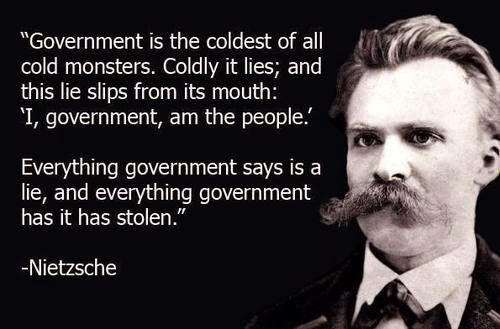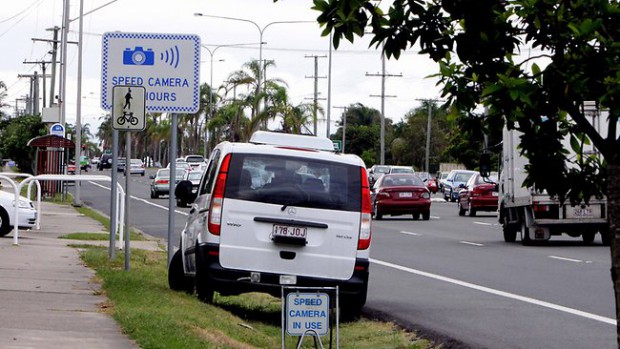TOWARDS ZERO? LEAVE MY FAMILY OUT OF IT

Emotional blackmail is insidious. The deliberate and cold-hearted manipulation of feelings to achieve a desired outcome. Many people have experienced slowly rising anger at the realisation they have succumbed to another’s request because their heart and soul were played with. Yet emotional blackmail is so common. And normally you do not realise until it is too late.
It can happen anytime. Just like that.
And now, as governments seek to conquer the beast that is the national road toll, we see the emergence of emotional blackmail in the National Road Safety Strategy, adopted in some form by all the states and territories.
Here’s how the narrative rolls…
What should the road toll be for your family?
How would you feel if a loved one died in a fiery ball of flames, their body crushed within the metal cage of the family wagon?
If only the speed limit was just ten kilometres less. If only it was 100km/h instead of 110. If only it were 90, instead of 100. If only it was 80, instead of 90. If only it were 60, instead of 70.
If only there were double demerits, or harsher penalties for exceeding the speed limit by two kilometres per hour. If only the speed cameras had lower tolerances.
Maybe, just maybe, your loved one would be saved.
Or maybe not.
But would you risk it?
What if you objected to the implementation of point to point cameras on that nice, long, wide, straight stretch of road where everyone cruises at 120? And the very next week, your loved one died.
What road toll would you accept for your family?
This is one of the latest messages emanating from the government.
Vile, isn’t it?
It is up to each of us, individually, to protect ourselves, and most of us also care about our families and friends. It is up to all of us to help reduce unnecessary deaths on the road.
Most people would agree with that.
But instead of providing proper resources to achieve this, many governments and bureaucrats behind the scenes are still pushing for punitive measures and reducing arbitrary speed limits. Because this attitude plays well with the media and the idiots who accept what the media tells the,m without question.
Will this government dumbness save your family?
Of course not.
It will only result in greater revenue for government, more people losing their licence and certainly no reduction in road deaths.
The national road toll has been reducing steadily over the past decade at a rate of around five per cent per year. Looking at the bigger picture, a sharp decrease was noted when seatbelts became mandatory. Child car-seats have contributed to a reduction in infant deaths. But there have been no major (successful) road safety implementations in the past decade. The steady decline has been attributed to better technology, producing safer cars, and a faster and better response to road trauma from a medical standpoint, which over time has led to less people dying on roads.
Punitive measures, like double demerits and greater fines have had no measureable impact at all. Neither have speed cameras. And you are being lied to when you’re told by government spin-doctors that these measures have succeeded.
There is strong research to suggest that people comply with the law because of the risk of being caught, not because of the severity of the punishment. If harsh punishment stopped people offending there would be no murders or rapes in the USA, where those crimes are punishable by death. There would be no drug trafficking into Indonesia or China.
Instead, harsher penalties for road traffic offences lead to more people losing their licence. And unlicensed drivers are already overrepresented in the road casualties and fatalities.
So what is the government really saying?
This: ‘Agree with our strategy or your family will die.’
Better roads and infrastructure cost money. Lots of money. Millions of dollars.
Reducing speed limits and increasing penalties for road traffic offences results in more money for governments. Lots of money. It accounts for it in the budget. It relies and depends on this money.
Better training takes time. And generally only applies to the next generation of drivers and riders.
Changing the attitudes of road users is too hard. No one has time for that.
But everyone has time for emotional blackmail.
And almost everyone loves their families.
No doubt whoever came up with the idea was well-intentioned, but it is pure evil to prey on a person’s biggest vulnerability – love for their family members.
Saving lives is important. Road deaths cost money and make people feel bad. How can governments get people to really care about saving lives?
By reminding people that it might be their own husband, mother, child or aunt who will be the next victim, lying on the side of the road under a white sheet.
And how does the government intend to save lives? In the cheapest and least effective way possible.
Most people will drive or ride at the speed they feel comfortable at, balancing out their desire not to crash and their desire to reach their destination in a timely fashion. People do not drive or ride with the intention of crashing.
In fact, in 2013, the rate of road deaths per 100,000 people in Australia was 5.16. That equates to a 0.0052% chance of dying in a crash. And acknowledging that not everyone drives, the rate of deaths per 10,000 registered vehicles is 0.47 for car, bus and taxi occupants, and 2.86/10,000 for riders of registered motorcycles. In reality, the chance of dying on the roads is extremely low.
But the government won’t tell you this. Instead, it will warn you that unless you agree to more punitive measures and slower journeys, your family will die.
Being human, crashes happen. And they are never an accident. It is always someone’s fault.
Inattention.
Inexperience.
Over-confidence.
Lack of skill.
Stupidity.
None of these things will be fixed by lower speed limits or introducing harsher penalties.
Sure, the slower your speed when you crash, the less severe the injuries. But the ‘safest’ speed is around 30km per hour. And even then, sometimes people die. Nationally, in 2013, 32% of fatal crashes occurred in speed zones of 60km/h or less. 23% of crashes occurred between 70-90km/h. Less than half occurred in zones over 90km/h. This breakdown has not changed in over a decade.
How much lower should speed limits be?
Any death on the road is a tragedy for the family. It is devastating for those left behind. They ask questions about what could have been done, how the person could have been saved, how they could have been protected. It is even more heartbreaking for the family when it is another driver’s actions which were responsible for the death.
It is cruel and manifestly unfair for the government to play on the emotions of families to attempt to enact unworkable strategies for miniscule road toll reductions.
If government’s really wanted to stop people dying it would improve infrastructure, no matter the cost. It would provide better training.
And it would work towards changing community attitudes towards road safety.
Every person is responsible for not crashing. Every person is responsible for ensuring their own safety and the safety of those around them. Every person should take steps to improve their skills, pay attention on the roads, and not do stupid things like driving through flood waters.
There is a lot the government can do to help reduce the road toll.
But it can quit with pointless initiatives and the emotional blackmail.









